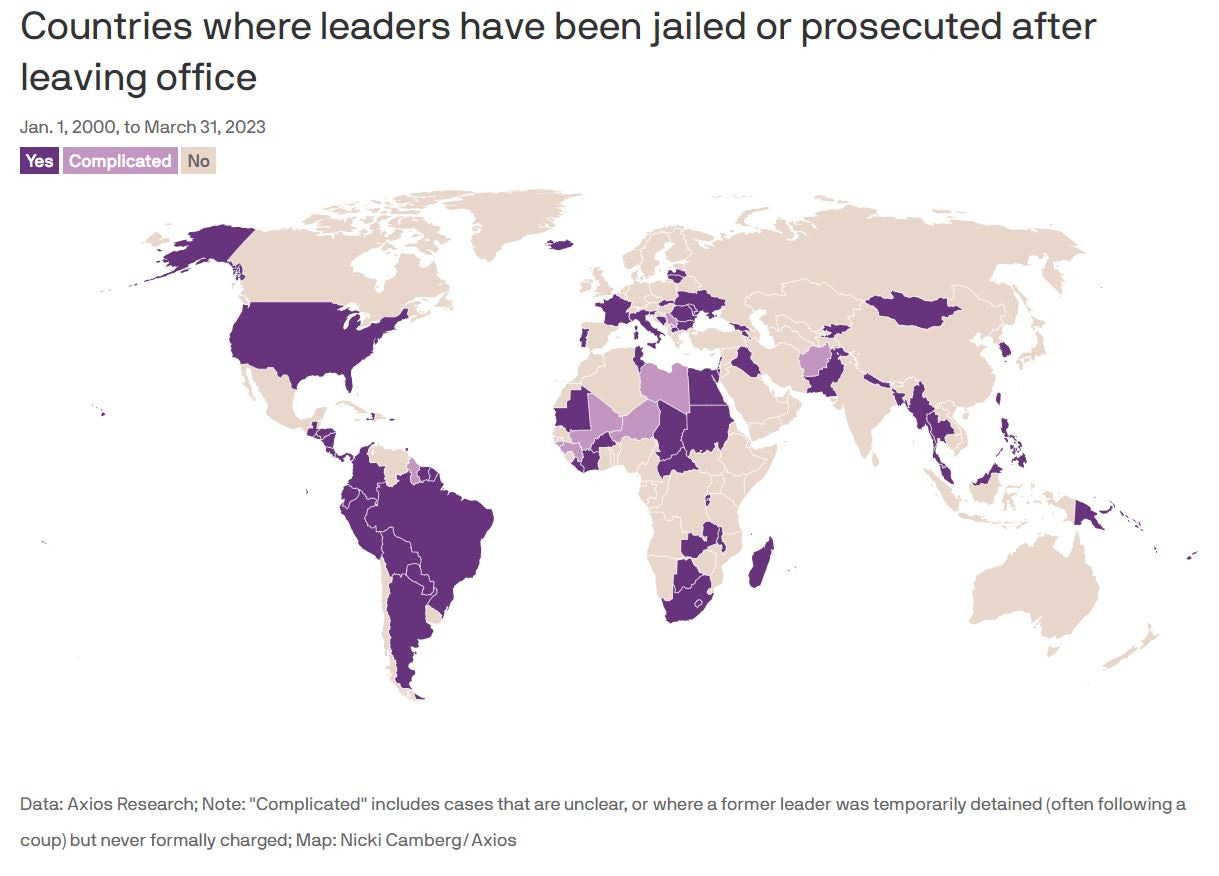The Trump verdict and America’s narrative on China
Ideological competition is not between the US and China; it’s between those who support rule of law and those who support impunity for Party leaders
Competition between the United States and China is the hot topic. Within that, many policymakers portray an ideological competition between the U.S. and China (or as some like to say, incongruently, the Chinese Communist Party). They speak of a systemic battle between freedom and tyranny, between democracy and authoritarianism, between upholding a rules-based order and defiance of it, between adhering to rule of law and rejection of it.
Two days ago Donald Trump was found guilty in the New York hush money trial. The Venn diagram overlap between politicians who criticize the verdict and politicians who speak of an ideological U.S.-China rivalry is large. And when they do so, they undermine their own case on both counts.
Verdict critics say the trial was a farce, a travesty of justice, and a corruption of rule of law. They claim the trial was politically-motivated. By definition, a president is a politician. Any trial of a former president thus can be labeled as politically-motivated. There are two ways to respond to this. One is to have faith in rule of law and in the justice system’s capacity to operate objectively and administer justice beyond a political motivation.
The other is to take the position that any trial that can be labeled politically-motivated is ipso facto invalid. This is the basis for the argument of verdict critics. The logic of this argument holds that no prosecution of a former president (or any official) can ever be valid, because it can always be labeled as politically-motivated.[1] And if no former president can be prosecuted, then he enjoys impunity. This position is clearly contrary to the rule of law.
And so these politicians simultaneously claim that, in an ideological competition with China, the United States stands on the side of rule of law, but also that rule of law should not apply in the United States with regard to a former president being held accountability for criminal activity. A contraction to be sure.
(Indeed, these politicians can and do say that rule of law is being abrogated in THIS particular case. Sure. They are free to make the case that a person falsifying financial records in order to cover up hush money payments to a porn star he had sex with while his wife was pregnant with their child is not a crime. And they are free to make the case that a person falsifying financial records in order to cover up hush money payments to a porn star he had sex with while his wife was pregnant with their child is not bad behavior. They are also free to make the case that a person falsifying financial records in order to cover up hush money payments to a porn star he had sex with while his wife was pregnant with their child should be president of the United States, again.)
One country where leaders are not held accountable for criminal activity under rule of law is China. Same with the other six countries (Russia, Cuba, Iran, Syria, North Korea, Venezuela) routinely labeled as “adversaries” in legislation supported by these politicians. In none of these countries does rule of law prevail.
The United States, where a former leader was just prosecuted, finds itself in different company, including many countries where rule of law is respected:
Source: Axios, Former leaders have been jailed or charged all over the world, May 31, 2024
So the politicians who take the position that it is contrary to rule of law to prosecute a former leader of the United States are putting themselves in company with countries that lack rule of law, like China.
When these politicians say the former president should be immune from prosecution they make a case that rule of law should not prevail in the United States. They are saying we should be more like China. By aligning their posture with that of the Chinese Communist Party, they undercut their own argument that the United States and China are in ideological competition
Personally, I find fault with the dichotomous narrative of systemic competition between the United States and China. Make no mistake, the two countries are in competition on economic and security matters, and over the international rule book. Indeed, there is ideological competition. But it is not between the U.S. and China, it is within both countries.
If we focus on conduct rather than labels, we will see that the CCP is engaging in many behaviors common among conservative parties around the world, including in the United States. There are plenty of people within China who do want rule of law, including having their leaders held accountable for criminal conduct. They dislike that that Party officials give their leaders impunity.
Therefore, the American politicians who decry the verdict against Trump are putting themselves in ideological alignment with CCP officials who give themselves impunity rather than the people in China who want rule of law to prevail.
In doing so, they reveal how empty their assertion of a systemic, ideological competition between the U.S. and China really is.
If we want to help the people of China prevail in their desire to live under rule of law, we Americans need to demonstrate that rule of law does work, and that we are on their side. And that includes holding our own former leaders accountable. The American politicians who insist on giving impunity to our most recent former president are merely showing the Chinese people that they, like CCP officials, value the Party’s interests over genuine rule of law.
[1] Of course these politicians are not credible, as many of them shouted “Lock Her Up!” at former Secretary of State Hillary Clinton and call for prosecution of sitting President Biden.




